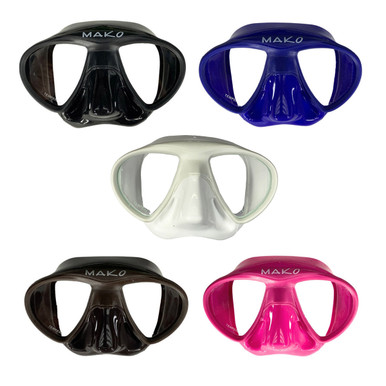It's not strange: they're trying to figure all this out. Some things are just expensive and the effort to deal with foggy masks go back quite a ways. I bought my first mask from Hal Watts back in 1969. It was a tri-panel, huge-volume Scubapro mask which paired well with the Jets I bought from him at the same time. Being quite new to diving, I was quite frustrated with fogging, so Hal sold me the best in a de-fogging solution. I went back to freedive the springs (I lived in Central Florida) and generously coated the three plates with the solution. Wow! No fog! Unfortunately, I didn't rinse the mask. The directions on the bottle were smeared, so I had no idea what I was doing. On the second or third ascent I happened to look up, and some of that ooze got into my right eye. Ye-ouch!!! The pain was excruciating, and I pulled my mask off, desperately trying to rinse the pain out. It didn't work, and I realized I was actually blind in that eye. My mom took me to the ER, with no relief. The next day, I saw my optometrist, who sent me down the road to an ophthalmologist. It took about a week for my vision to be restored, but I've never ever trusted that stuff. I lick my mask now, usually not availing myself of the spit contaminated mask buckets they have on most boats.I find it strange that when the average dive mask in the market costs about EUR80 the OP is thinking about solutions that begin at EUR200?
So, while I would love a permanent coating of some sort to solve this issue, 200 smackers is a steep barrier for me to even try it. I have a lot of free spit that I have ready access to. I find that getting the right fit is the most important aspect to choosing a mask. For me, the Mako Ultra-low Volume Freediving Mask is the best fit. I love it and have two spares, just in case.




